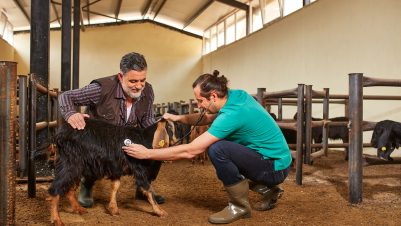Every four years certain events roll round that entail a huge amount of preparation. The World Cup is one, the Olympics another, and for vets in the UK it’s the RCVS Practice Standards Scheme (PSS) inspection. Not quite an Olympian event in terms of effort, but something that does loom rather large on the four-yearly horizon.
In sports, I am a big believer in the “train hard, race easy” philosophy. The theory, if you can dignify it with such a word, is that the stress and effort should all be in the preparation, training and planning, and then, on race day, the event itself should be relatively easy.
Our very first PSS inspection was before the advent of online document uploads. We thought we were well prepared but doing the first one from scratch is not easy. We were visited by a fairly surly gentleman who sat in a back consult room for an entire day while the head nurse and I carried in boxes of documents for him to check. Some weren’t present, and I remember ducking out to quickly write up and print an SOP or policy document here and there. The ink was barely dry on some of the items he inspected.
As with most practices, we were doing all the stuff he wanted to know about, but unless he had a piece of paper with it written on, he had no way of knowing we were doing it and no way of passing that proof on. He took a cursory glance round the practice (not the building we are in now, but a ground-floor section of a Victorian house) and was on his way. The whole experience was thoroughly demoralising and seemed very much a paper-based tick-box exercise, with minimal emphasis on us as a clinical practice and its staff. Our next PSS inspection was in our new building and was much better. This week we had our most recent one.
The boxes of files and paper – some with the ink still damp – of our first PSS inspection has now been replaced with a system whereby you upload all the documents by two weeks before the event. This enables you to make sure you know what is required and whether you have submitted it, though you still need to wheel in things like a COSHH folder and have some evidence of various other staff-related things. The actual inspection still involves some going through lists, but it is a whole magnitude less stressful when you know that most of it has already been done.
The laser focus this time was on medicines and an audit of their use, especially for controlled drugs. It did serve to remind me that, as vets, we sit in a complex linked web of supply, use and misuse of these things. At one end of the web are drug users, dealers and the thieves who will rob your practice. On another strand are vets and nurses who make poor decisions and end up using or supplying them too. Across from them is the police, then the VMD and RCVS, and in the middle is your vet practice, with a cupboard full of high-value drugs bolted to the wall. We get so familiar with using drugs for their intended purpose that it can be easy to forget their other connotations.
Staff mental health also featured in our interrogation from the inspector – this was the first time it has appeared as an item for inspection. Again, it served as a reminder as to what can go wrong, with some fairly sobering examples relayed to us by the inspector.
The practice and branch were properly inspected, and some of the staff were given a gentle grilling. In this role the RCVS is effectively doing the VMD inspection for them, so I would say this felt like the most specific and detailed part of the on-the-day inspection. It is difficult to assess clinical competence. No one would want an RCVS inspector interrogating a vet or nurse in their practice on their clinical competence, or watching ops and anaesthesia – I think the stress this would cause on the clinician could have genuine animal welfare implications. I wouldn’t want to be spaying an overweight Labrador or trying to drip a collapsed old cat with someone like that watching.
There were still some frustrating paper chases to do for our PSS. The VMD demands we have a piece of paper listing everywhere we store medicines, even though we have just had these places inspected. So, we need this list on a piece of paper, the sole purpose of which is to be inspected. Another gripe is the requirement to provide data sheets with all dispensed medicines every time. Every month a patient gets the same drug, it involves paper, printer ink, staff time and general hassle just so the client can bin the information as soon as they get home. We should be allowed to provide website links for repeat medications. The client only needs the piece of paper once.
To my surprise the PSS inspection is still voluntary and only taken up, according to the RCVS website, by about two-thirds of practices. I am sure that the public would assume that there are mandatory inspections. It is a pain to do, but the PSS does ensure you are following the law, and having someone with decades of practice experience cast their eye over your practice is a valuable thing: they may just have some good ideas or spot something wrong that you have missed. But remember to train hard, race easy and spend some time recovering and debriefing.











